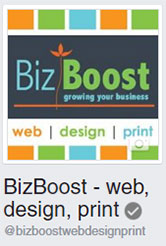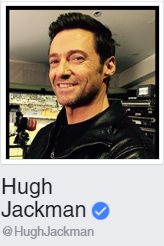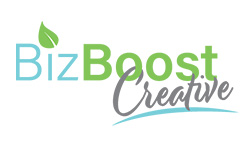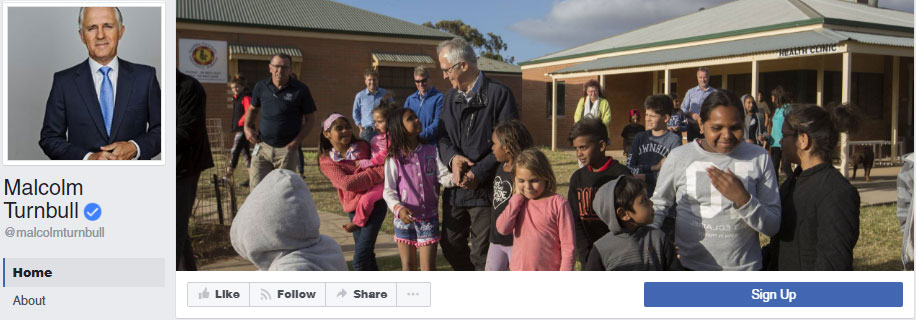 Have you noticed that little grey or blue tick that sometimes appears below the profile picture on a Facebook Business Page? This is Facebook’s way of telling you that they have confirmed the page is authentic.
Have you noticed that little grey or blue tick that sometimes appears below the profile picture on a Facebook Business Page? This is Facebook’s way of telling you that they have confirmed the page is authentic.
The blue tick was introduced first as a way to verify the “official page” of a public figure, media company or global brand. A few years ago, Facebook also rolled out a grey tick for businesses that fall into the category of:
- Local business or place
- Company
- Organisation
- Institution
 If you fall into this latter group of businesses and you have your work phone number listed on your page, then getting verified is very simple. All you have to do is jump onto Facebook and “request a call”. Facebook then calls with an automated message that provides a verification code. The verification code then gets entered back into your Facebook page and voila, you are verified.
If you fall into this latter group of businesses and you have your work phone number listed on your page, then getting verified is very simple. All you have to do is jump onto Facebook and “request a call”. Facebook then calls with an automated message that provides a verification code. The verification code then gets entered back into your Facebook page and voila, you are verified.
Ok, yes. That was a very simplified explanation. But all up, getting the Bizboost Facebook page verified took us less than five minutes. For more detailed instructions, you can visit here.
As an owner of a small business, should I verify my page?
These days, the blue tick is still more commonly used by larger brands and public figures in order to combat copycat pages.
Quite often you will find several different Facebook pages that appear to be owned by the one person. Take Malcolm Turnbull as an example. A search for our PM on Facebook brings up many different pages. Some are clearly created by other people (‘Malcolm Turnbull for PM’, ‘
Malcolm Turnbull Memes’…). However, others have simply called themselves ‘Malcolm Turnbull’ and on face value, it’s difficult to determine which one is the official page. This is where Facebook’s verification process comes in handy. We can tell from the little blue tick that Facebook has verified that this page is directly linked to Malcolm Turnbull office.
But what about smaller or local businesses who don’t have to worry about copycat pages? You might expect someone to create a fake page for a big, well-known brand like Vogue. But it’s much less likely that someone would create a second “Bizboost – Web, Design and Print” Facebook page. (What can I say? We’re just not as famous as Vogue yet.)
If you are also in this boat, then is it worth verifying your Facebook business page?
The Benefits:
Will It Improve Brand Credibility?
That little grey tick on your Facebook page can indicate to new visitors that your brand is trustworthy. This can definitely be a benefit for online businesses – often people can find it takes longer to build confidence in a business where there is no brick and mortar shopfront or face-to-face time with customers. It can also add an air of legitimacy for a business who is trying to reach out to new audiences that may not have heard of the brand before.
However, our experience is that it doesn’t create a huge difference where a business is operating within a local area or is already well-known has a strong reputation in the community around them.
Another point to consider is that not all visitors to your page will notice the grey tick. Despite being introduced over 18 months ago, very few users are aware of what the ticks represent or put total faith what it symbolises.
Will It Improve Social Search?
 Word on the street is that having a verified Facebook page will help you appear higher in the Facebook search results. For example, someone may be looking for a new hairdresser so they type “Tailem Bend hairdresser” into the search bar on Facebook. If you’re a hairdresser in Tailem Bend, then it would be comforting to know that your verified business page could appear higher in the results then your competition.
Word on the street is that having a verified Facebook page will help you appear higher in the Facebook search results. For example, someone may be looking for a new hairdresser so they type “Tailem Bend hairdresser” into the search bar on Facebook. If you’re a hairdresser in Tailem Bend, then it would be comforting to know that your verified business page could appear higher in the results then your competition.
However, I haven’t ever seen Facebook officially confirm this. To date, it has mainly been other bloggers and social media experts that have suggested that verification plays a role when searching for a business. When testing this out, I found that it appeared to help when searching for a particular business or public figure. For example, when searching for “Nicole Kidman,” the official (and verified) page appeared before any copycats. But it doesn’t appear to make any difference when searching for a particular type of business. When searching for “Adelaide café”, only one of the five top results was a verified page.
It’s also worth noting that searching for a new business in this way is rare. Generally people turn to Facebook when they are searching for a particular business that they have heard of before and in that case, being verified makes little difference.
Will It Improve Social Engagement?
There is a rumour floating around that having a verified Facebook page will help increase engagement with your page and posts. The idea here is that Facebook will feel more comfortable sharing your post with more people if it’s confident that your page is genuine. However, this strategy has not been confirmed by Facebook and many people have noted very little change in their statistics after being verified. At Bizboost, we definitely didn’t notice an unusual increase in engagement after getting the little grey tick of approval.
So, Are You Saying I Shouldn’t Bother?
There are some benefits to verifying your Facebook page but it is definitely not a necessity for small businesses. It is possible to have a successful and engaging Facebook page without being verified.
However, getting your page verified is really simple. I probably spent more time debating “should I bother verifying the page” than it actually took me to get it done. And it definitely doesn’t hurt your page. So if you have ten minutes up your sleeve, why not?












